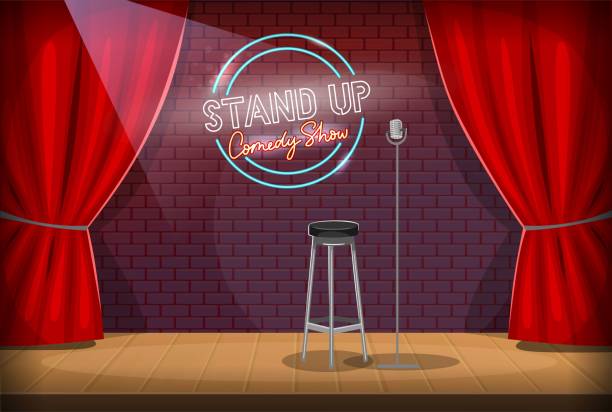The Journey of a Beginner Comedian: From Open-Mic to Professional Performances
Every comedian’s journey begins with the first step on stage. Open-mic nights serve as the starting point, giving beginners the chance to perform their jokes in front of a live audience. It is here that style begins to form, ideas are tested, and the foundation for a professional career is laid.
Open-mic sessions are not just performances—they are learning laboratories. Comedians develop stage presence, learn to read audience reactions, adjust material on the fly, and overcome stage anxiety. Every mistake and every successful punchline becomes a lesson, helping to shape a unique comedic voice.
Growth Through Practice
After the initial open-mic experiences, a beginner gradually moves to more advanced formats, such as themed nights, mini-shows, or Pro-Am evenings, where amateurs share the stage with professionals.
The Pro-Am (Professional + Amateur) format is a key stage in a comedian’s development. Beginners observe how experienced comedians perform, learn techniques for delivery, maintain audience attention, and create polished jokes. This exposure accelerates professional growth and prepares comedians for full-scale performances.
The Importance of Comedy Clubs
Local comedy clubs play a critical role in developing a comedian’s career. They provide structured environments, regular performance opportunities, and a safe space to experiment with material in front of diverse audiences.
A prime example is in Montreal. Since 2009, this club has offered a variety of opportunities for growth:
-
Open-mic nights for testing material;
-
Pro-Am shows, where newcomers perform alongside professionals;
-
Evening and late-night shows for experimenting with form and content;
-
A “dinner + comedy” format, turning a visit into a full cultural experience.
Such support allows beginners to gradually refine their style and prepare for professional performances on larger stages.
Psychology and Stage Skills
A comedian’s journey is not just about jokes—it also involves psychological preparation. Beginners must learn to:
-
Manage stage fright and nerves;
-
Read the audience and adapt material accordingly;
-
Accept critique and use it for improvement;
-
Develop an individual style and recognizable comedic voice.
Regular performances in local clubs help train these skills, making performers more confident and flexible.
From Clubs to Festivals and Major Stages
After years of practice, many comedians move on to larger events and festivals. International festivals, such as Just for Laughs in Montreal, offer opportunities to reach a wider audience, exchange experiences with peers, and gain attention from the professional industry.
Even on large stages, the foundational experience gained from open-mic nights and local clubs remains essential. Skills in audience interaction, real-time adaptation, and crafting lasting material are developed early and carry through every performance.
Mentorship and Community
Community and mentorship play a major role in a comedian’s development. Beginners learn from seasoned performers, observing timing, joke structure, and delivery. Clubs provide platforms for exchanging ideas, sharing experiences, and building a supportive network.
Comedyville actively fosters this community by bringing beginners and professionals together on the same stage. This interaction accelerates skill development, helps produce quality shows, and creates a culture of support within the industry.
Digital Tools and the Modern Scene
Today, a comedian’s journey can also include online platforms. Videos, livestreams, and social media allow material to reach audiences beyond the club. However, live performances remain critical for developing stage skills.
Comedyville successfully combines live shows with online streaming, enabling beginners to adapt material for different formats and audiences, from small clubs to digital viewers.
Conclusion
The journey of a beginner comedian is a process of continuous growth, starting with open-mic nights and progressing to professional performances on larger stages. Small clubs provide freedom to experiment, Pro-Am formats accelerate professional development, and support from mentors and the comedy community helps shape a unique style.
Clubs like stand up comedy in montreal demonstrate how a newcomer can navigate this path, gaining experience, support, and opportunities to develop. Every night at the club becomes a unique lesson, allowing the comedian to grow while audiences enjoy the vibrant energy of live comedy.
- Art
- Causes
- Best Offers
- Crafts
- Dance
- Drinks
- Film
- Fitness
- Food
- Spiele
- Festival
- Gardening
- Health
- Startseite
- Literature
- Music
- Networking
- Andere
- Party
- Religion
- Shopping
- Sports
- Theater
- Wellness






